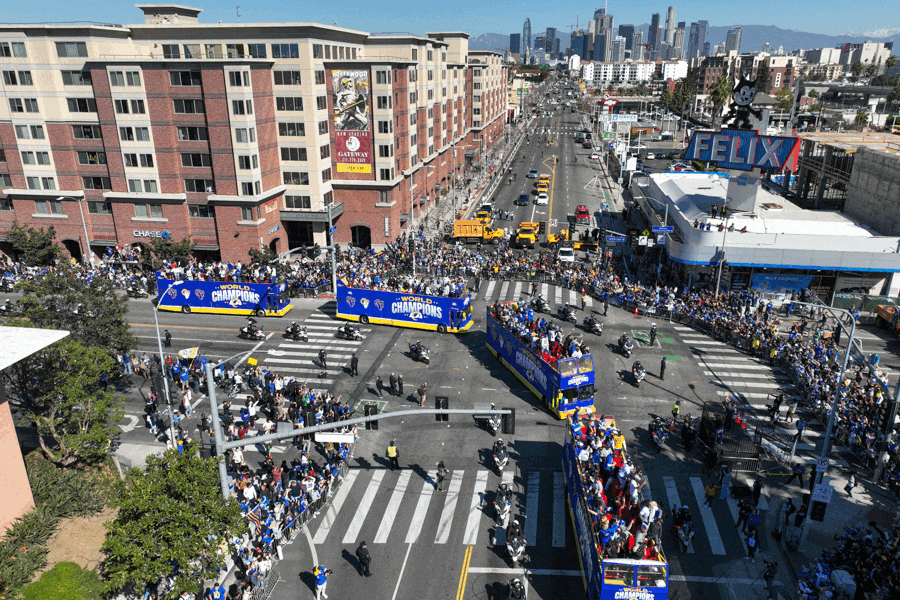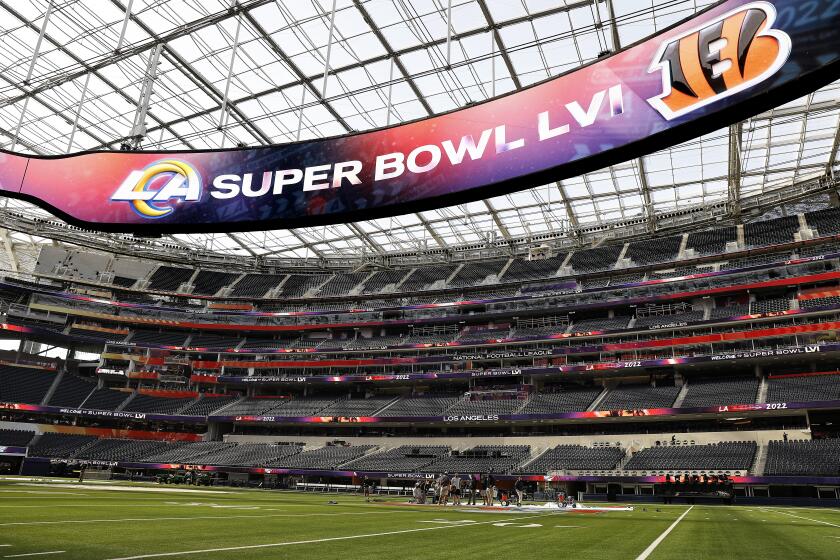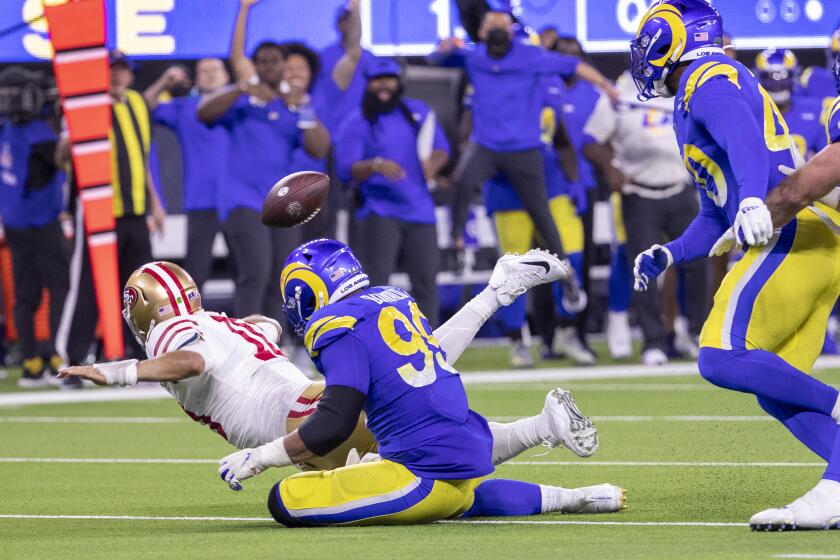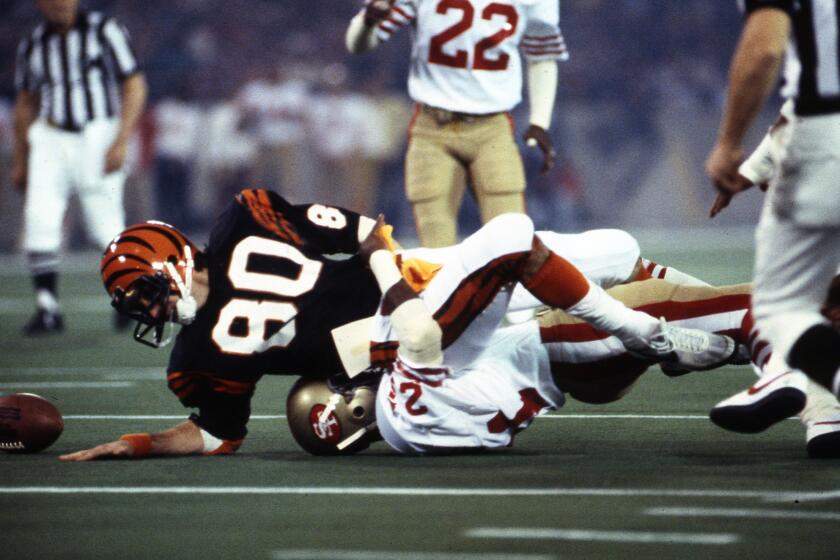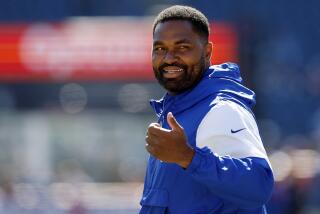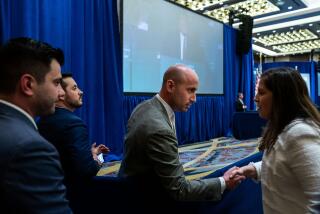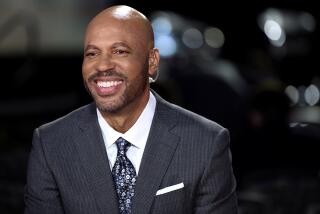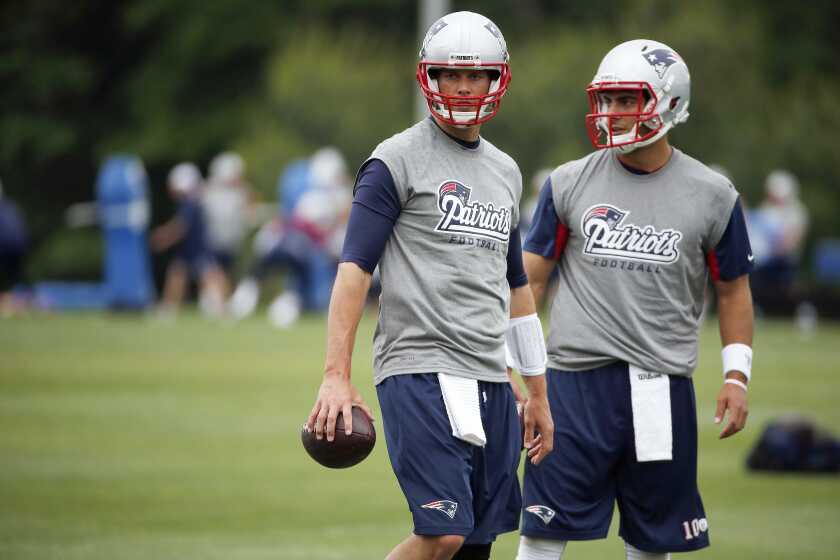Column: You got it wrong, NFL. Hiring issues are about meritocracy not diversity
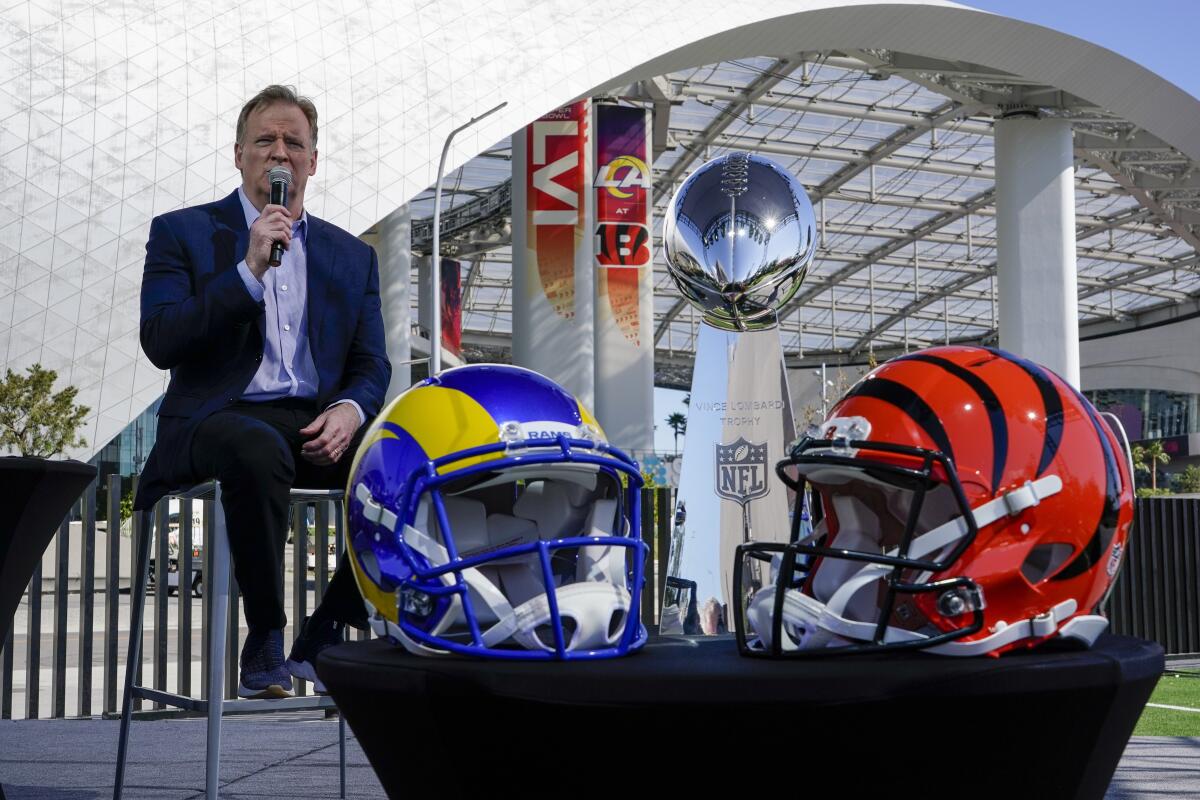
Some subjects are too sensitive to talk about frankly, I guess.
Four days before the Super Bowl LVI, NFL Commissioner Roger Goodell staged a news conference outside SoFi Stadium during which he responded to Brian Flores’ racial discrimination lawsuit by proclaiming he was a champion of diversity.
“We believe in diversity,” Goodell said.
The declaration missed the point of Flores’ complaint.
This isn’t about diversity. This is about meritocracy.
The NFL’s player population is 70% Black. That doesn’t make the NFL a diverse league. That makes the NFL a Black league.
The problem isn’t that there isn’t a Salvadoran nose tackle or Japanese tight end. NFL teams have shown they will sign pretty much anyone of any background if they can help them win games, even domestic abusers and repeat drunk drivers.
The problem is that in a time when seven out of 10 people who know what it’s like to strap on a helmet and play in an NFL game, the 32-team league has only two Black head coaches, Mike Tomlin of the Pittsburgh Steelers and Lovie Smith, who was recently hired by the Houston Texans.
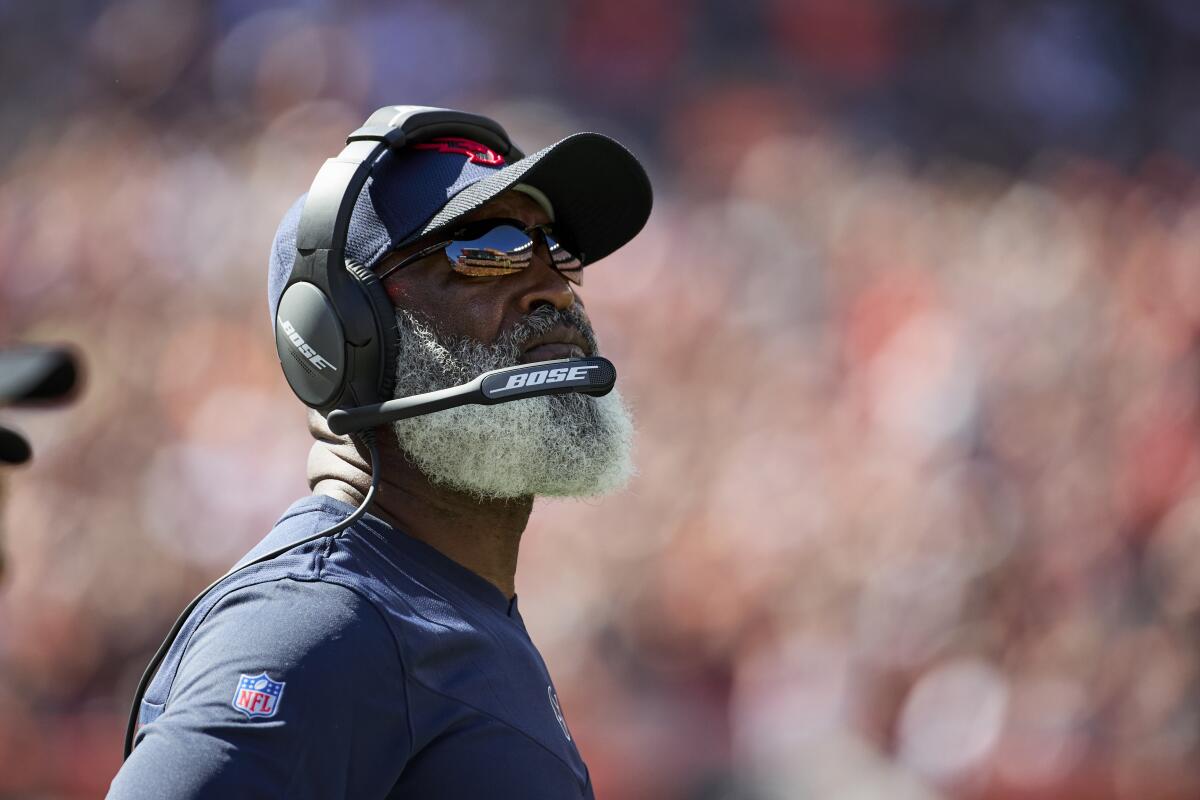
Such figures would reflect a meritocracy only in the mind of a white supremacist who is convinced of the superiority of white coaches.
Individually, most head-coaching hires are justifiable, with organizations able to make credible arguments on why they believe the coach they chose will win them the most games.
But the larger picture is indefensible, looking almost as if the league has secretly implemented a reverse affirmative action program. The reality that almost every single team hires a white head coach almost every single time points to a bias — specifically, an anti-Black bias.
The term “diversity” has turned into a catch-all term used to describe purported efforts to expunge discrimination. There’s a reason Goodell used the vague term, namely that it permitted him to make vague promises about pushing for change.
There’s nothing vague about what’s happening, however.
Here’s everything you need to know about the 2022 Super Bowl, including start time, location, TV channel, streaming options and halftime show.
NFL Network reporter Jim Trotter, who is Black, addressed the heart of the matter when he asked Goodell, “Why does the NFL and its owners have such a difficult time at its highest levels hiring Black people into decision-making positions?”
Trotter named the 13 franchises that have never hired a Black head coach. He pointed to how the NFL Network for which he works doesn’t have a single Black person in a senior-level newsroom position.
Goodell stammered.
“Yeah, Jim, listen … um …” Goodell started. “We’ve … We look at the same numbers and … um …”
Goodell clearly wasn’t ready for Trotter’s directness.
Super Bowl Strategy: How can the Bengals deal with Aaron Donald and the Rams’ vaunted pass rush? The answer is in the arm and legs of their poised quarterback, Joe Burrow.
Once he regained his equilibrium, Goodell offered up platitudes about how the league values diversity and has benefited from diversity, when, in truth, his league is built on the backs of players of one particular group.
Trotter’s question remained unanswered, which should have elicited skepticism about how serious Goodell is about offsetting the conscious or subconscious anti-Black bias pervasive in the league’s upper levels of management.
The scarcity of Black coaches is a symptom. The bias is the cause.
How can a problem be fixed when there’s no interest in exploring its origin?
Goodell arguably could be making the situation worse because of his choice of words.
Cris Collinsworth, who lost two Super Bowls while playing for the Bengals, thinks this season’s Cincinnati team has a chance to win it all.
Goodell described diversity as a moral imperative. In the case of football, at least, he’s misguided.
In the ideally meritocratic world of sports, what is a moral imperative is equal opportunity.
That’s not the same thing.
Talk about “diversity,” as Goodell did, and the image it conjures is of people in power doing a Black coach a favor by hiring him. In actuality, franchise owners and general managers would be doing themselves a favor if they could eliminate their biases that limit the scope of their head-coaching searches.
The history of this country makes race a difficult subject to discuss. However, euphemisms often have the unintended consequences of misdirecting the conversation and maintaining the status quo.
Goodell has to do better.
More to Read
Go beyond the scoreboard
Get the latest on L.A.'s teams in the daily Sports Report newsletter.
You may occasionally receive promotional content from the Los Angeles Times.

